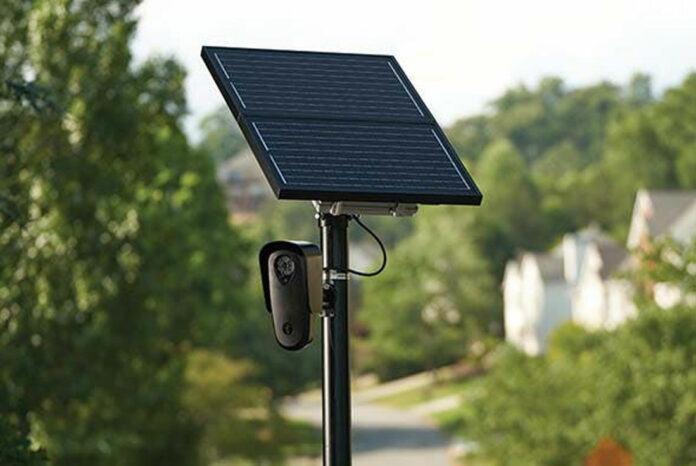The Hollister City Council voted Aug. 21 to partner with Flock Safety to provide gunshot detection and license plate reading cameras for a roughly one square mile area of Hollister.
The council gave Mayor Mia Casey the green light to sign a two-year contract with the automated security company in a 4-0 vote. Council member Rolan Resendiz was not present at the meeting.
The Flock system will include its Raven gunshot detection system, which records a five second clip of purported gunshots, and 15 automated license plate registration (ALPR) cameras in central Hollister. The area would border west to San Lorenzo Drive; north to Buena Vista Road; east to Chappell Road and south to South Street.
The Raven is an audio detection device that detects gunshots, locates the source of the sound and works together with the Flock camera system to relay audio and visual recordings to law enforcement.
“It sounds wonderful and I’m glad we’re moving ahead,” Casey said during the meeting.
Hollister Police Chief Carlos Reynoso was on hand to field questions from the council about the Flock system and how it could add to law enforcement capabilities in the city. Reynoso said that the area was chosen due to it having “the most historically reported gunshot crimes.”
The contract with Flock Safety will cost the city up to an estimated $93,500 for the first year and $80,000 for the second year. The city council began exploring gunshot detection and ALPR systems late last year and the cost for the new contract has been figured into the existing city budget, according to city staff.
Existing surveillance cameras operated by the City of Hollister will not be connected to the Flock system, but could be networked into it at an additional cost, Reynoso said.
Flock Safety, which was founded in 2017, is based out of San Francisco and specializes in video surveillance and analytics that uploads to a cloud run by Amazon Web Services. To date, the company has installed cameras in 1,400 cities across the nation. Recently, the company was injected with $300 million in venture capital investments. In addition to selling to law enforcement agencies, it also sells its systems to HOA’s and schools.
A key feature of the Flock system in Hollister is the ability for other local, state and federal law enforcement agencies who are also using Flock to tap into the city’s database. The purpose of this feature, according to Flock Safety, is for law enforcement agencies to search for vehicles on their “hotlists” that have been involved in crimes. Currently, the cities of
However, there are concerns regarding the overreach of a mass surveillance database.
In California, Assembly Bill 1463 is moving through the legislature and, if signed into law, would prevent the sharing of information from ALPR cameras to out-of-state federal agencies “enforcing federal immigration laws, bans on abortion services and gender-affirming care.” The bill would also require ALPR databases to purge any information not being used in a felony criminal investigation within 30 days and limit the overall access to data to 60 days.
New Hampshire recently passed a bill requiring ALPR cameras to delete any data not on a hotlist after 72 hours.
Casey also thinks that using the Flock system is worth a shot to help the city’s police and that it is not intended for arbitrary surveillance.
“You evaluate things and if there become problems, or we see that, you know, there’s abuse or anything else going on like that it doesn’t necessarily mean it’s permanent. If it doesn’t work and is problematic, it can be removed as well, but I think a lot of cities have employed this and have had very good results,” Casey said.
The system will be evaluated each year to document the effectiveness of the system in Hollister. At that time a report will be presented to the city council to determine if the contract should be terminated at the end of the initial period or be extended. The contract may also be expanded to incorporate additional parts of the city, according to a city staff report.
Council member Rolan Resendiz is a strong supporter of the new partnership between Hollister and Flock Safety and understands the risks of surveillance technology.
“I think when you’re adapting to the new age of technology that we live in, you’re going to have its pros and its cons,” Resendiz said.“I believe in the legislative process. I’m hoping that we could work through all of that and ensure that people who are seeking medical care or who are seeking asylum are protected from any type of retaliatory actions and whatnot, and I just don’t see that happening in our state.”
Resendiz said that he would like to see ALPR cameras at all entrances to the city and not just in the area proposed in the initial agreement. He said the targeting of “one neighborhood over another” may be problematic.








Horrible Idea!
We Don’t Need this Constant Surviellance.
Too much Policing AS IS !
SYSTEM Will BE ABUSED!
Public had no input!